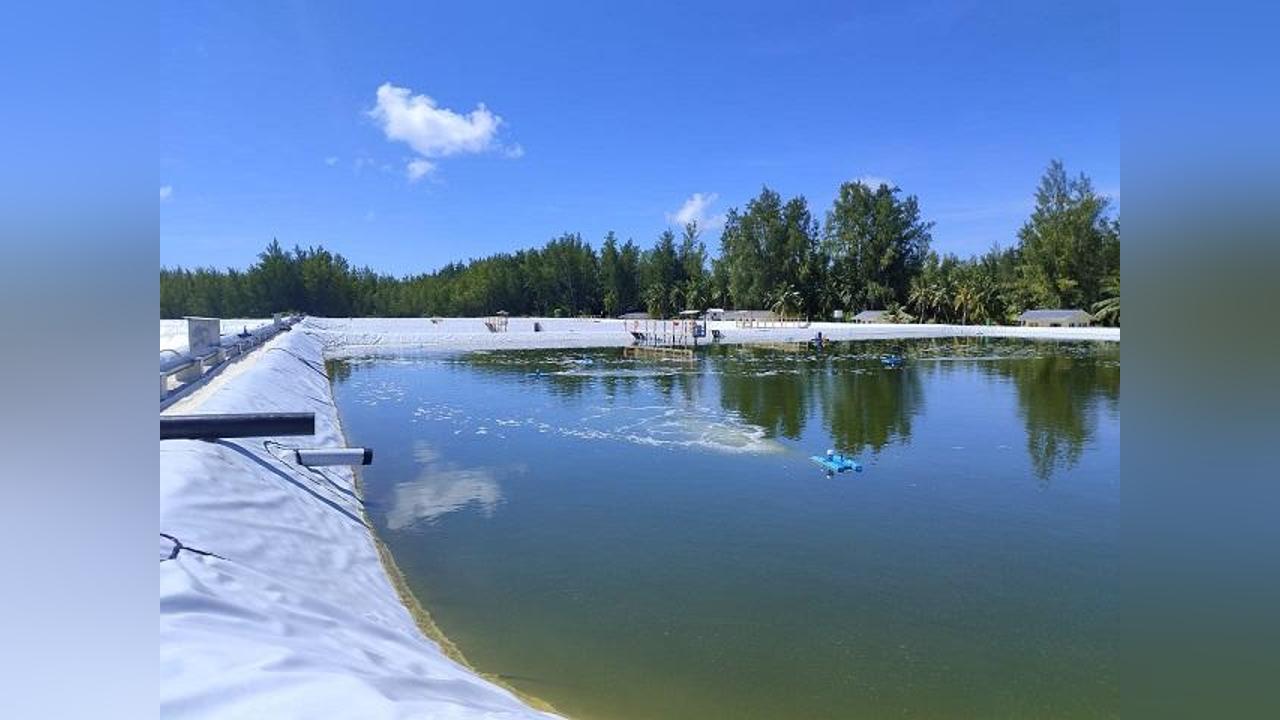Eswatini Water Research Symposium

Background
Water availability and water quality are critical concerns for several SADC member states. This is due to the redistribution of rainfall globally; the introduction of new pollutants in water and the shrinking of available surface water resources for treatment which then increases treatment costs. Globally, several international and regional instruments have prioritised water resources management and collaborations between public and private entities to gather resources for water management and supply. The United Nations Sustainable Development Goal (SDG) 6 promotes the availability and sustainable management of water and sanitation for all, targeting universal and equitable access to safe and affordable water access for all. This is achievable through the reduction of pollution, treatment of wastewater to the required standard, investment in water efficiency use and robust data management and sharing for decision making.
In line with regional agreements and practices, the Government of Eswatini has put at the center of water resources management research as a credible data gathering exercise for the assessment of the extent of the implementation of her programs in the sector. These include National Water Policy (NWP) of 2018, the National Climate Change Policy (NCCP) of 2016, Water Resources Master plan of 2015, National Irrigation Policy (NIP) of 2005, National Integrated Water Resources Development and Management (IWRM) Strategy, National Sanitation and Hygiene Strategy of 2019-2023, National Development Strategy (NDS), to mention a few. As a result, the University of Eswatini (UNESWA), as a significant partner in the water sector and leader in research, has collaborated with other stakeholders to host the Eswatini Water Research Symposium 2023 in partnership with the Institute of Nanotechnology for Water Sustainability (iNaNoWS) of the University of South Africa (UNISA).
The symposium seeks to advance discussions between academia and partners in the public and private sectors on challenges and available solutions for the water sector. These issues are in the following thematic areas;
- Water quality assessment and emerging water quality concerns,
- Water treatment strategies and available technologies, and
- Water management, use and climate resilience of the sector.
The symposium will appreciate and interrogate needs from the local water industry, appreciate current and past research and advanced water treatment technologies by researchers from UNESWA and iNaNoWS. These presentations will be the basis of the discussions to initiate collaborations and a way forward on same.
The Event is scheduled to take lace at the University of Eswatini, Kwaluseni Campus at the IDE Lecture Theater beginning at 8.30am.
Program
Time | Activity | Facilitator/Chair | |
08:30 | Opening Ceremony · Opening Remarks – Dean · UNESWA – Prof JM Thwala – UNESWA Vice Chancellor · MNRE (Department of Water Affairs) · MICT (Department of RSTI) · UNISA – Prof. T. T. I. Nkambule – An overview of UNISA’s Initiative Towards Institutes of Global Stature | UNESWA | |
09:30 | Health Break | ||
Presentation of Water Industry milestones and needs for Eswatini | UNESWA | ||
09:45 10:00 10:15 10:30 | Urban and peri-urban water supply: Lessons learnt and emerging challenges – Eswatini Water Services Corporation The role of Water Act insitutions in implementing intergrated water resources management – Joint River Basin Authorities – Project Board Optimizing project planning and irrigation designs in response to climate change: A case study for the LUSIP and MNWAP projects – ESWADE Komati Basin Management – KOBWA | ||
10:45 | Health Break | ||
Water Quality Assessment and emerging concerns | UNISA | ||
11:00 11:20 11:40 12:00 12:20 12.40 | Progress in Biomedical, food and nutrition Research at iNanoWS – Prof TAM Msagati (iNanoWS) A response to data and technology needs for water resources management: A chemistry perspective – UNESWA Challenges of water users on the implementation of the water act and other national policies – Water User Associations Research and Development in Water, Sanitation, Hygiene and Health – UNESWA Tailoring membrane systems for desired selectivity profile – Prof RM Moutloali (iNaNoWS Water Quantity and Quality issues in agricultural water management – UNESWA | ||
13:00 | Lunch Break | ||
Water Treatment and available technologies | LOC | ||
14:00 14:20 14:40 14:40 | Membrane application for environmental remediation: towards a lower CO2 footprint and reusable wastewater – Dr OT Mahlangu (Post Doctoral Fellow – iNaNoWS) and Ms NP Khumalo (PhD student – iNaNoWS) A Review of Remote Sensing for Water Quality Retrieval: Progress and Challenges – UNESWA The Versatility of Engineering – Ms M Msibi (Lecturer, Mechanical Engineering) Discussions | ||
16:30 | Closing and Announcements | ||